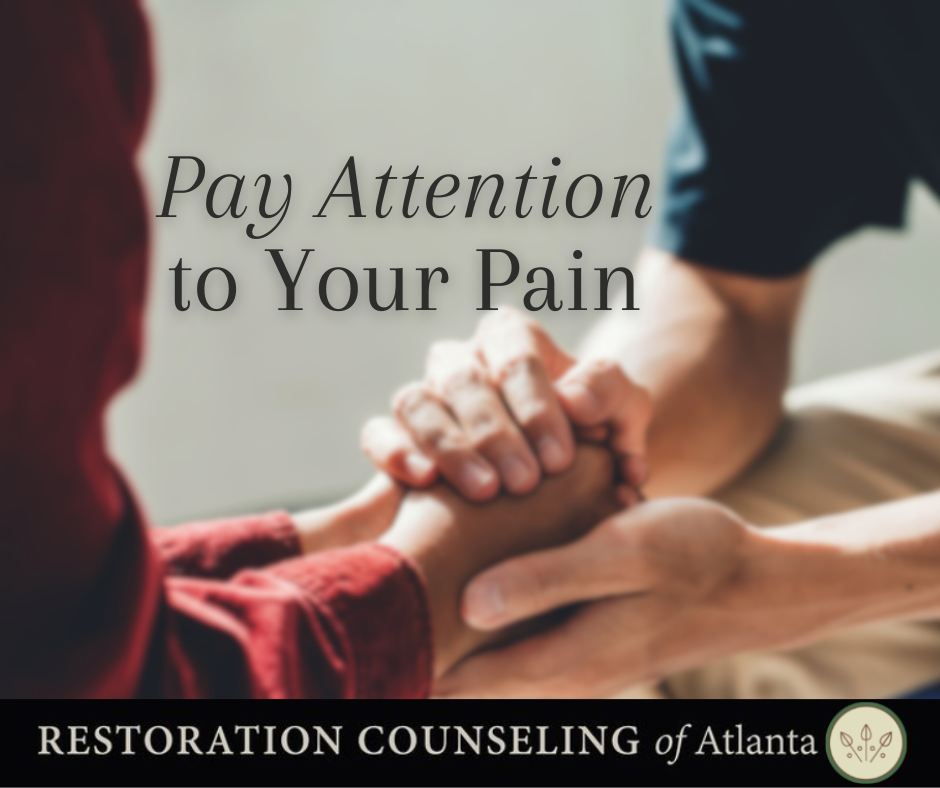Most people don’t enjoy pain. It has the power to prevent us from doing what we want to do or being who we want to be. Pain derails healthy lives. Sometimes, it’s physical – a headache, injury, or infection. Sometimes, it’s psychological pain – like pangs of grief, heartache, or the painful thoughts and emotions that contribute to depression and anxiety. On occasion, pain shouts and is searing. Other times, it is subtle and insidious. In most cases, we simply want pain to STOP! Stop the suffering so we can move on with our daily activities. Stop so we can feel well, interact with those we love, do the things we want to do, and be at ease.
Thankfully, there are many solutions that relieve physical and psychological pain. Prescription medications and pain management tools are a blessing and can save the lives of people suffering from otherwise debilitating injuries or illnesses. Pain has a purpose, however, and in our pursuit of relief, we need to be careful not to overlook it. C.S. Lewis, author of “The Problem with Pain,” writes, “Pain insists upon being attended to. God whispers to us in our pleasures, speaks in our conscience, but shouts in our pain: it is His megaphone to rouse a deaf world.” Pain communicates to us that something underlying needs to be tended to and healed.
When we experience physical pain, we seek the expertise of a physician. We trust that the doctor can help us find the underlying cause and treat the wound or disease. Lewis writes, “Mental pain is less dramatic than physical pain, but it is more common and also more hard to bear. The frequent attempt to conceal mental pain increases the burden: it is easier to say, “My tooth is aching” than to say, “My heart is broken.” Psychological pain is complicated. If we are not careful, we can mistake it as the problem rather than a guide to an underlying wound that needs healing.
Healing Psychological Pain
When we view pain as the problem rather than an underlying wound, we run the risk of trying to numb it ourselves. We numb using alcohol, illicit drugs, or pornography. We overwork, overeat, and over-shop, or lose ourselves in social media, television, or video games. These anesthetics for emotional pain work for a moment but cause more problems in the long run. Numbing pain through these behaviors damages our brains, bodies, and relationships. It keeps us stuck and prevents us from healing and leading healthy lives.
Do you think that you may be numbing psychological pain? Please don’t continue down this path alone. Call a mental health counselor. A counselor will support you and help you learn how to stop unwanted habits, cope, and guide you on a path toward true healing.
Pay attention to your pain. Listen to it and let it guide you to help and healing.
Lewis, C. S. (1940). The Problem with Pain. Harper Collins.
 Written by Andrea Brandt, NCC, APC
Written by Andrea Brandt, NCC, APC
andrea@restorationcounselingatl.com, ext. 154
Online Counseling
Andrea Brandt works with adults who desire freedom and healing from the impact of addiction, obsessive-compulsive disorder, anxiety, and depression. She uses EMDR to help clients reduce the urge to engage in behaviors that they want to stop, and she treats the underlying trauma and beliefs that fuel unhealthy behaviors and thinking. On the journey toward healing, Andrea guides clients in understanding and managing emotions, creating, communicating, and maintaining healthy boundaries, and growing in healthy relationships. Andrea has specialized training EMDR, Addictions, and Exposure and Response Prevention. She sees clients via telemental health from her boat-office, Knot 2 Late. She believes that it is never too late to embrace change, heal, and grow.

